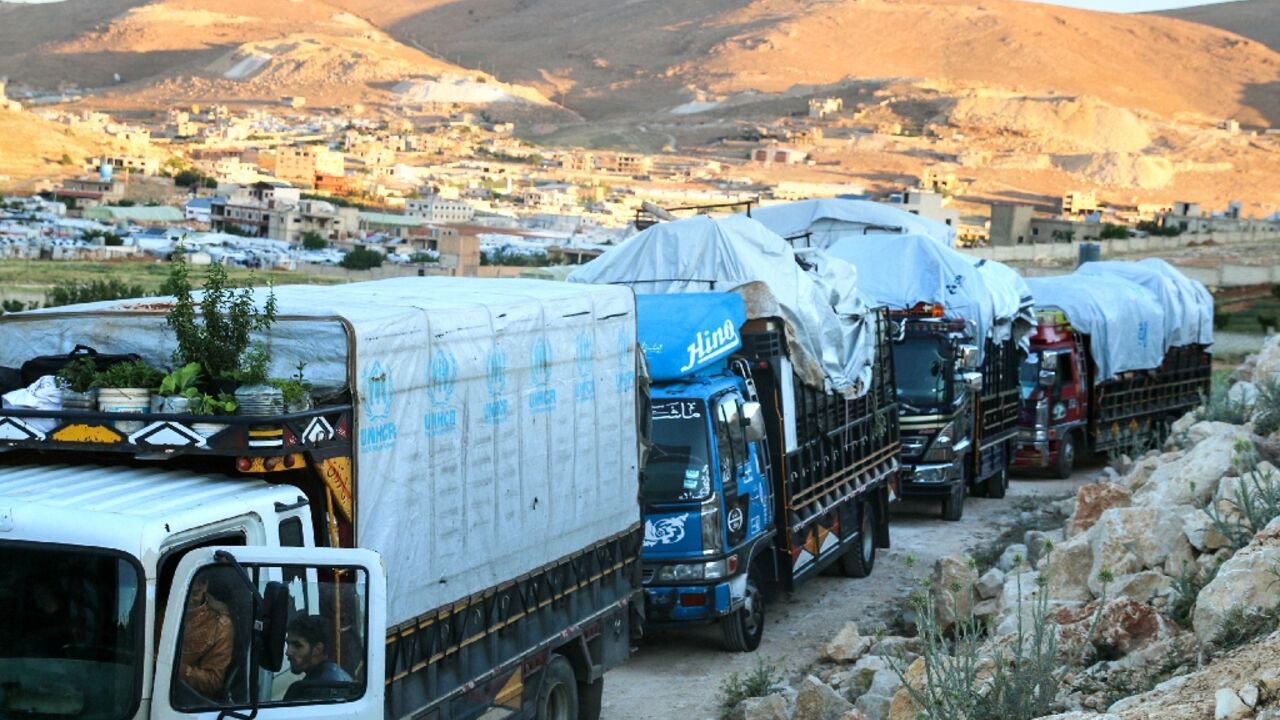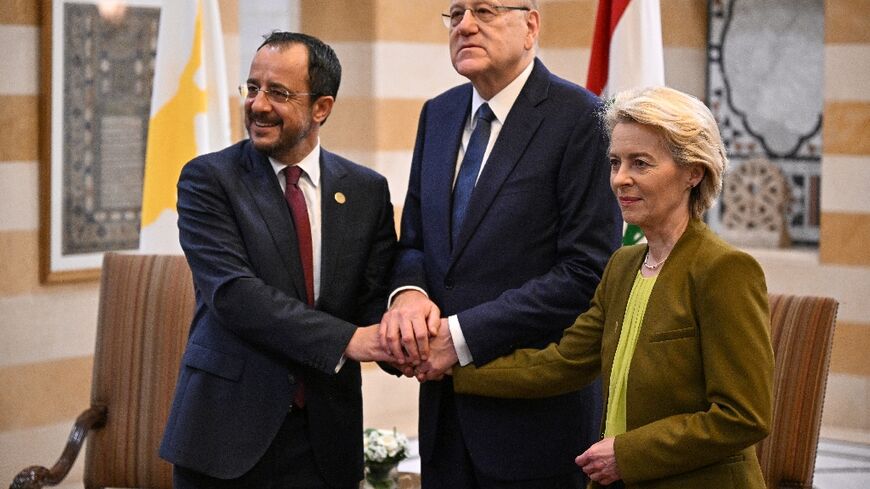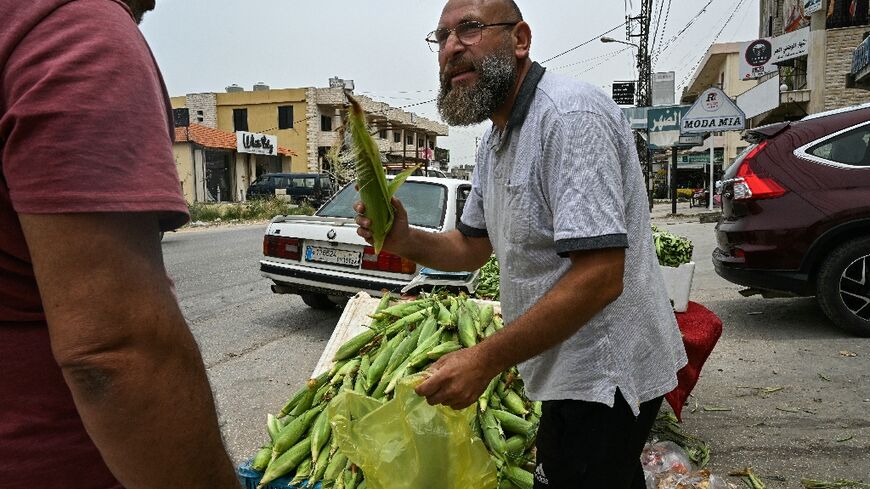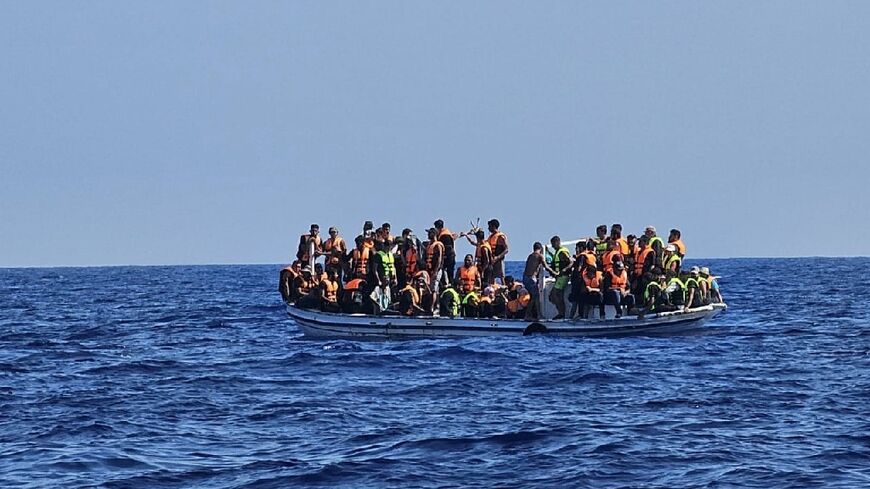Lebanon resumes 'voluntary' repatriations of Syrians

Beirut repatriated several hundred Syrians on Tuesday in coordination with Damascus as pressure mounts in cash-strapped Lebanon for the hundreds of thousands of refugees to go home.
Vans and small trucks were waiting in the Arsal area near the border early in the morning to ferry home the returnees, an AFP photographer reported.
The vehicles were piled high with mattresses and other belongings and some were even accompanied by livestock.
"I'm going back alone for the moment, in order to prepare for my family's return," said a 57-year-old man originally from Syria's Qalamun area, declining to be identified by name.
"I am happy to go back to my country after 10 years" as a refugee, he told AFP.
Around 330 people had registered to be part of the "voluntary return", Lebanon's official National News Agency (NNA) said.
Syrian state news agency SANA reported that an unspecified number of people had arrived from Lebanon as part of the initiative.
Lebanon, which has been mired in a crushing economic crisis since late 2019, says it hosts around two million Syrians, the world's highest number of refugees per capita, with almost 785,000 registered with the United Nations.
Earlier this month, the European Union announced $1 billion in aid to Beirut to help stem irregular migration to the bloc, but in Lebanon the package has been criticised for failing to meet growing public demands for Syrians to leave.
Parliament is set to hold a session on Wednesday to discuss the EU assistance.
Lebanon began the "voluntary" return of small numbers of Syrians in 2017 based on lists sent to the government in Damascus, with the last such group crossing the border in 2022.
Human rights group Amnesty International said at the time that Lebanese authorities were putting Syrians at risk of "heinous abuse and persecution upon their return", adding that the refugees were "not in a position to take a free and informed decision about their return".
On Monday, Hezbollah chief Hassan Nasrallah urged Lebanese authorities to open the seas for migrant boats to put pressure on the European Union, whose easternmost member, Cyprus, is less than 200 kilometres (125 miles) away.
Nicosia on Tuesday expressed concern at the remarks and said Nasrallah's message "certainly should concern us".
"We are in contact with the authorities of Lebanon, and we believe that through these contacts, we will be able to manage it (irregular migration)," Cypriot government spokesman Konstantinos Letymbiotis told reporters.




